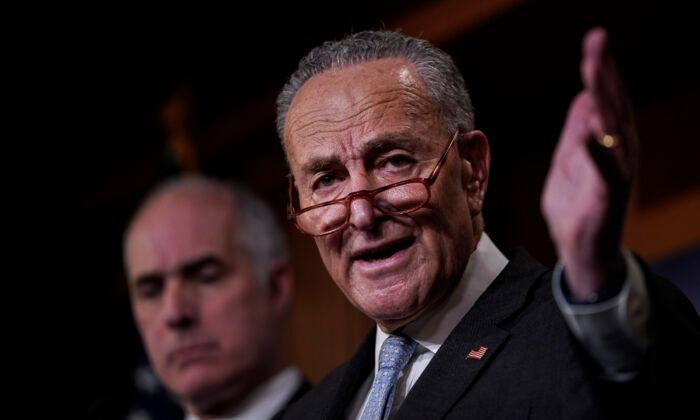WASHINGTON—U.S. Senate Democrats have released their plan for countering communist China’s influence on Thursday, unveiling a $350 million package of legislation seeking to boost U.S. competitiveness and reestablish diplomatic efforts through international organizations like the World Health Organization.
“This is an American issue. This is not a partisan issue,” Risch told a committee hearing at which State Department officials testified about China’s global influence, with one calling Beijing a “lawless bully.”
Senator Bob Menendez, the committee’s ranking Democrat and a leader of the Democratic effort, said he looked forward to working with Republicans “to forge a strong, unified and bipartisan approach” on the matter.
The Democrat’s “America LEADS Act of 2020” looks to provide new resources to the U.S. education system, and affirm “America’s commitment to its allies around the world and in the Indo-Pacific region, specifically Japan, South Korea, the Philippines, Australia, Thailand, as well as key partners like Taiwan and ASEAN.”
It also proposes strengthening trade enforcement measures and emphasising human rights issues with China such as protests in Hong Kong and the treatment of Uyghurs in Xinjiang.
Tensions between China and the United States have escalated during the Trump administration, due to President Donald Trump’s “America First” policies demanding reciprocal trade. However, tensions continued to heighten following the coronavirus pandemic and Beijing’s introduction of its National Security Law in Hong Kong, which has acted to undermine the rule of law in the former British colony.
The policies also propose providing tax credits and allowing “100 percent expensing deductions for essential industries like pharmaceuticals and robotics” to incentivize companies to produce in the United States.






Friends Read Free